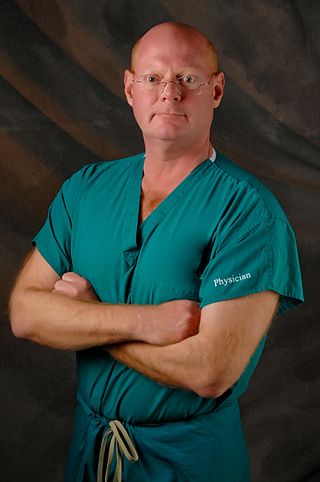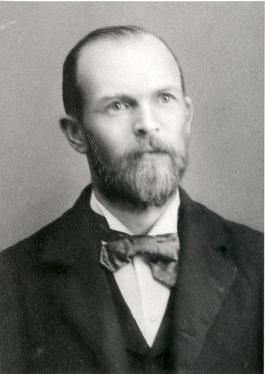Related Research Articles

The University of Texas Medical Branch (UTMB) is a public academic health science center in Galveston, Texas, United States. It is part of the University of Texas System. UTMB includes the oldest medical school in Texas, and has about 11,000 employees. As of April 2024, it had an endowment of $763 million.

Arthur L. Caplan is an American ethicist and professor of bioethics at New York University Grossman School of Medicine.
Joseph J. Fins, M.D., D. Hum. Litt., M.A.C.P., F.R.C.P. is an American physician and medical ethicist. He is chief of the Division of Medical Ethics at New York Presbyterian Hospital and Weill Cornell Medical College, where he serves as The E. William Davis Jr., M.D. Professor of Medical Ethics, and Professor of Medicine, Professor of Public Health, and Professor of Medicine in Psychiatry. Fins is also Director of Medical Ethics and an attending physician at New York Presbyterian Hospital-Weill Cornell Medical Center. Fins is also a member of the adjunct faculty of Rockefeller University and has served as Associate for Medicine at The Hastings Center. He is the Solomon Center Distinguished Scholar in Medicine, Bioethics and the Law and a Visiting Professor of Law at Yale Law School. He was appointed by President Bill Clinton to The White House Commission on Complementary and Alternative Medicine Policy and currently serves on The New York State Task Force on Life and the Law by gubernatorial appointment.

The Hastings Center is an independent, nonpartisan bioethics research institute and think tank based in Garrison, New York.

Edmund Daniel Pellegrino was an American bioethicist and academic who served as the 11th president of The Catholic University of America (CUA) from 1978 to 1982. For 35 years, Pellegrino was a distinguished professor of medicine and medical ethics and the Director of the Kennedy Institute of Ethics at Georgetown University. Pellegrino was an expert both in clinical bioethics, and in the field of medicine and the humanities, specifically, the teaching of humanities in medical school, which he helped pioneer). He was the second layman to hold the position of President of Catholic University.
William J. Winslade is the James Wade Rockwell Professor of Philosophy of Medicine at the Institute for Medical Humanities, University of Texas Medical Branch at Galveston and Distinguished Visiting professor of Law and associate director for Graduate Programs, Health Law & Policy Institute at the University of Houston Law Center. He is a fellow of the Hastings Center, an independent bioethics research institution.
Matthew K. Wynia is an American physician and bioethicist who has been the director of the Center for Bioethics and Humanities at the University of Colorado's Anschutz Medical Campus since 2015. He also oversees an art gallery and forum there. He previously directed the American Medical Association's Institute on Ethics for 15 years. He also previously served as an assistant professor of medicine at the University of Chicago, as the president of the American Society for Bioethics and Humanities, and as the director of patient and physician engagement at the American Medical Association in Chicago.
Jonathan D. Moreno is an American philosopher and historian who specializes in the intersection of bioethics, culture, science, and national security, and has published seminal works on the history, sociology and politics of biology and medicine. He is an elected member of the National Academy of Medicine.
Dan W. Brock was an American philosopher, bioethicist, and professor emeritus at Harvard University and Brown University. He was the Frances Glessner Lee Professor Emeritus of Medical Ethics in the Department of Global Health and Social Medicine at Harvard Medical School, the former Director of the Division of Medical Ethics at the Harvard Medical School, and former Director of the Harvard University Program in Ethics and Health (PEH).
Baruch A. Brody was an American bioethicist. He was the Leon Jaworski Professor of biomedical ethics and former Director of the Center for Ethics, Medicine and Public Issues at The Baylor College of Medicine and Andrew Mellow professor of Humanities in the Department of Philosophy at Rice University.

John P. McGovern was an American allergist, investor and philanthropist. He established the McGovern Allergy Clinic in Houston, Texas, created the Texas Allergy Research Foundation and the John P. McGovern Foundation, and co-founded the American Osler Society.
Leonard Michael Fleck is an American philosophy professor and medical ethicist. He earned his Ph.D. from St. Louis University in 1975 and taught courses at St. Mary's College (Indiana) before going on to teach and at Michigan State University where he currently holds a dual appointment with the philosophy department and the Center for Ethics and Humanities in the Life Sciences. Fleck was also a member of Hillary Clinton's Task Force on Health Reform in 1993 and the staff ethicist for the Michigan governor's task force on access to health care in 1989-1990.
The MacLean Center for Clinical Medical Ethics, founded in 1981, is a non-profit clinical medical ethics research institute based in the United States. Founded by its director, Mark Siegler, the MacLean Center for Clinical Medical Ethics aims to improve patient care and outcomes by promoting research in clinical medical ethics by educating physicians, nurses, and other health care professionals and by helping University of Chicago Medicine patients, families, and health care providers identify and resolve ethical dilemmas. The center has trained over 410 fellows, including many physicians, attorneys, PhDs and bioethicists.

Josef F. Schmid is a German-American physician, NASA flight surgeon and a major general in the United States Air Force Reserves. He served as an aquanaut on the joint NASA-NOAA NEEMO 12 underwater exploration mission in May 2007. On 8 October 2021 he became one of the first humans to be Holoported off the planet and into space, visiting the International Space Station by telepresence.

Sean Kevin Roden was a NASA flight surgeon with multiple roles for medical operations including for the International Space Station (ISS) from 2004 to 2007.
Daniel Sulmasy is an American medical ethicist and former Franciscan friar. He has been Acting Director of the Kennedy Institute of Ethics and on the faculty of the Pellegrino Center for Clinical Bioetics. He is the inaugural Andre Hellegers Professor of Biomedical Ethics, with co-appointments in the Departments of Philosophy and Medicine at Georgetown.
Thomas R. Cole is a writer, historian, filmmaker, and gerontologist. He is currently the McGovern Chair in Medical Humanities and Director of the McGovern Center for Humanities and Ethics at the University of Texas Health Science Center at Houston. He is also a spiritual director at Congregation Beth Israel's Center for Healing, Hope, and the Human Spirit.

Marie Charlotte Schaefer was an early Texas physician and the first woman to become a faculty member of the University of Texas Medical Branch (UTMB).

William Keiller was a Scottish born anatomist who trained in anatomy at the Edinburgh Extramural School of Medicine and was appointed as the first Professor of Anatomy at the University of Texas Medical Branch (UTMB) at Galveston, a post he held for 40 years. He served as Dean of the UTMB Medical School and as President of the Texas Medical Association. Many of his anatomical drawings and paintings are preserved and displayed at the Blocker History of Medicine collection at UTMB Moody Medical Library.
William Francis May was an American ethicist, academic, theologian, and ordained Presbyterian minister. His work focused primarily on questions of medical and bioethics, professional ethics in general, and public responsibility and policy.
References
- ↑ "Howard Brody". Name Authority File. Library of Congress . Retrieved 24 June 2017.
- ↑ Levinthal, Dave (15 September 2016). "When it comes to transparency, neither Trump nor Clinton excel — but Clinton does better". Center for Public Integrity . Retrieved 24 June 2017.
- ↑ "Center for Ethics and Humanities in the Life Sciences History". Michigan State University Website. Retrieved 24 June 2017.
- 1 2 Talbot, Margaret (9 January 2000). "The Placebo Prescription". The New York Times . Retrieved 24 June 2017.
- ↑ Barton, Adriana (12 January 2014). "The placebo effect: A new study underscores its remarkable power". The Globe and Mail . Retrieved 24 June 2017.
- ↑ Zuger, Abigail (20 March 2012). "A Drumbeat on Profit Takers". The New York Times . Retrieved 24 June 2017.
- ↑ "Study: Appendix surgery costs differ around U.S." CBS News . Associated Press. 23 April 2012. Retrieved 24 June 2017.
- ↑ Dreger, Alice (6 February 2013). "What the Sunshine Act Means for Health Care Transparency". The Atlantic . Retrieved 24 June 2017.
- ↑ Begley, Sharon (21 February 2013). "Just say don't: Doctors question routine tests and treatments". Reuters . Retrieved 24 June 2017.
- ↑ Elder, Laura (25 March 2016). "Former medical humanities program director lodges complaint against UTMB". The Daily News . Retrieved 24 June 2017.
- ↑ Ferguson, John Wayne (5 April 2017). "Lawsuit asserts UTMB used misery campaign to force resignation". The Daily News. Retrieved 24 June 2017.
- ↑ "Brody receives lifetime achievement award" (Press release). University of Texas Medical Branch. 12 June 2009. Retrieved 24 June 2017.
- ↑ "Hastings Center Fellows". The Hastings Center. 21 September 2015. Retrieved 30 April 2019.